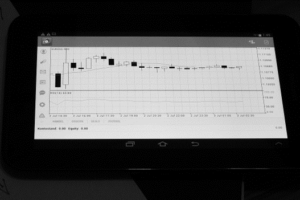
Life insurance serves as a crucial financial safety net, providing a sense of security for individuals and their families. However, the life insurance needs and preferences of different generations vary significantly due to factors like family dynamics, financial goals, and personal circumstances.
This article explores the distinct considerations for millennials and baby boomers in terms of term life insurance, shedding light on how each generation approaches insurance coverage while addressing their unique requirements.
Family Dynamics and Responsibilities
Millennials: Many millennials are in the early stages of building their families, which often means they have dependents such as spouses, young children, or even aging parents. Consequently, their life insurance needs often revolve around protecting these vulnerable family members in case of unexpected events. Term life insurance is a popular choice for millennials due to its affordability and flexibility. It allows them to secure coverage during the years when their family’s financial future is most at risk.
Baby Boomers: Baby boomers, on the other hand, often have grown children who are financially independent. Their focus may shift from protecting dependents to leaving a legacy or ensuring that their surviving spouse is adequately provided for. Term life insurance might still be considered by boomers who have outstanding debts or want to cover funeral expenses, but they might also explore permanent life insurance options that build cash value over time.
Retirement Planning and Financial Goals
Millennials: Retirement planning is a critical consideration for millennials, even though it may seem distant. Many millennials are burdened with student loan debt and are focused on saving for major life milestones like buying a home. Term life insurance can provide them with peace of mind during these high-stress years, knowing that their loved ones would be protected if they were no longer able to contribute financially.
Baby Boomers: As retirement nears, baby boomers tend to prioritize ensuring a comfortable retirement lifestyle and leaving a financial cushion for their heirs. Life insurance, if still held, might serve as an inheritance or a means to cover potential estate taxes. However, at this stage, the need for large life insurance coverage might diminish, and boomers could consider adjusting their coverage based on their current financial situation.
Approaches to Insurance Coverage
Millennials: The digital age has reshaped millennials’ approach to purchasing life insurance. They are more likely to research and compare life insurance rates online to find cost-effective options that align with their financial goals. Online tools and calculators assist them in estimating coverage needs and premiums, enabling them to make informed decisions without the need for face-to-face interactions with agents.
Baby Boomers: Baby boomers, having grown up in a different era, might prefer traditional methods of purchasing life insurance. They may rely on recommendations from friends, family, or financial advisors and place greater emphasis on a personal touch during the decision-making process. Face-to-face consultations with insurance agents could play a more significant role in their insurance journey.
Adapting to Changing Needs
Millennials: As millennials progress through life stages, their life insurance needs continue to evolve. Starting with basic coverage to protect their growing families, they might later increase coverage to account for factors like mortgage payments and education expenses. Term life insurance’s affordability and ability to match changing needs make it an adaptable option for millennials.
Baby Boomers: Baby boomers may find that their need for life insurance decreases as they accumulate wealth and their children become self-sufficient. At this point, they could consider modifying their policies or exploring other financial instruments that align with their estate planning objectives.
Conclusion
Life insurance is a dynamic financial tool that serves varying purposes for different generations. Millennials primarily seek to shield their young families from financial instability, while baby boomers tend to focus on legacy planning and retirement considerations. As technology reshapes the insurance landscape, millennials leverage online platforms to compare life insurance rates and tailor coverage to their preferences.
On the other hand, baby boomers often rely on personal connections and expert advice to make informed decisions. By understanding the distinct needs of millennials and baby boomers, insurance providers can offer customized solutions that cater to the diverse requirements of each generation.







